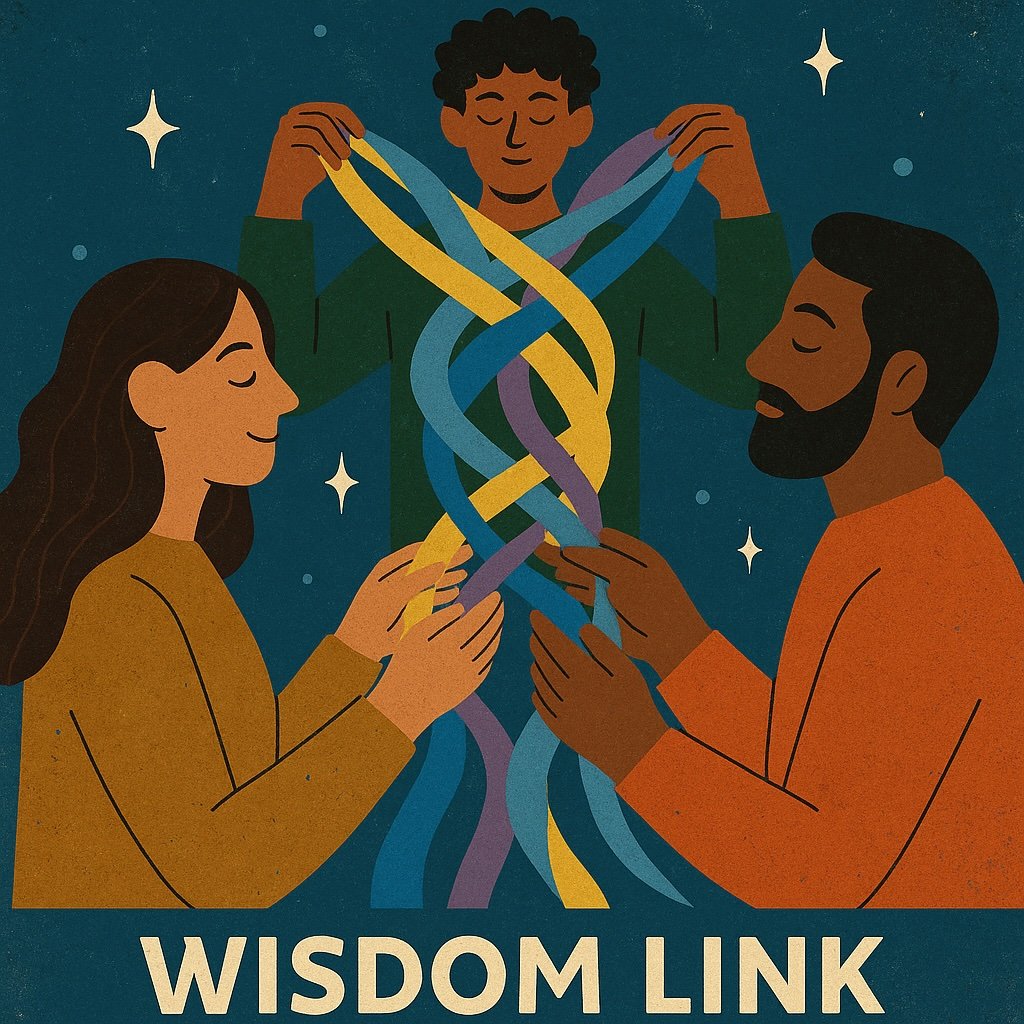Chart Your Career Story: Coaching Tips for New Professionals - Part 1
Defining Your Narrative—Setting Career Goals with Purpose
Let’s jump right in. Why?
Why do you want the job or career you're reaching for?
What inspired the decision?
What makes it feel right—or at least worth exploring?
To really answer that, you have to start with something deeper than a title or a salary. In two of our most honest blogs—“Redefining Success: What’s the Story You’re Really Living?” and “Do You Really Need College? A Real Talk Reflection on Purpose, Paths & Possibility”—we asked questions like:
Am I choosing this path because I want it—or because I’m afraid of disappointing someone?
What feeds my soul even when no one’s watching?
What legacy do I want to leave behind?
What would I still do even if no one clapped for me?
What kind of impact feels meaningful to me?
What does “enough” look like for me—not just financially, but emotionally, mentally, and spiritually?
What conditions help me truly thrive?
What do I really want to do with my life—beyond what sounds impressive?
These questions aren't just reflective—they’re foundational. They help you get honest about what you want, outside of what other people expect or what the world says success should look like.
Here’s the truth:
You don’t need a fancy title to be successful.
You don’t need a perfect career path to feel fulfilled.
But you do need clarity. You need alignment. And you need a ‘why’ that belongs to you.
Above all, remember—career journeys are just that: journeys. They don’t have to move in straight lines or unfold on anyone else’s timeline. Your path can be nonlinear, unexpected, and still deeply intentional. Mine was. If you look at my work history, you might not have guessed I’d end up here—writing, coaching, and guiding others to tell their story. But even with questions (from myself and others), I knew I was moving toward something meaningful.
✨ Abundant Tip: You don’t have to have all the answers. Start with the questions that matter.
Building Your Cast—Networking as Story Collaboration
So everyone knows that a journey is nothing without comrades and some may say that for careers it is all about networking, but not I. I say it’s all about the stories you share and the relationships you build. A network won’t have people saying your name in rooms. A network won’t hear an opportunity and reach out to encourage you to apply. People who know your story and have a relationship are the ones to do that. So if you are looking for networking, go elsewhere because I suck at networking, but I excel at wisdom linking.
Wisdom Linking is our take on what the world calls “networking”—but with more heart, more purpose, and a whole lot more story. It’s about building relationships rooted in shared values, lived experience, and mutual growth. When we wisdom link, we’re not just swapping business cards or collecting connections—we’re exchanging insight, affirming each other’s journeys, and creating space for collaboration that feels real and reciprocal. Whether it's a mentor who sees your potential or a peer who shares your purpose, wisdom linking reminds us that connection is a two-way gift—and everyone has something to teach and something to learn.
Wisdom linking isn’t just about growing your network—it’s about building meaningful, story-centered relationships that support your growth. As a new professional, it’s easy to feel like you need all the right answers before reaching out. But the truth is, you don’t need polish—you need presence. When connecting with mentors, alumni, professors, or professionals, lead with curiosity and clarity. Why are you reaching out to them specifically? What about their work, values, or story aligns with yours?
Then, offer a glimpse of your own journey. Think of it as your anchor—not a full résumé, but a brief insight into who you are and what you’re exploring. For example:
"I’m early in my career and currently exploring paths that combine creativity and community engagement. I’ve been following your work in [field] and really appreciate how you bring purpose into what you do. I’d love to hear more about your journey and what helped you navigate your early career."
This approach gives people a reason to connect—it feels personal, not transactional.
Wisdom linking works best when you remember it’s a two-way exchange. Sharing your story helps others know how to support you—and sometimes, your perspective or enthusiasm can be just as affirming for them. You’re not asking for a job; you’re offering a conversation rooted in mutual purpose and growth.
Look beyond traditional job boards or cold outreach—there are plenty of ways to build relationships:
LinkedIn: Engage with people’s content before reaching out. Leave thoughtful comments or reshare posts that resonate with your values or goals.
Alumni Networks: Use your college or training program’s alumni database to find people in roles or industries you’re curious about.
Events & Webinars: After a panel or workshop, follow up with speakers to thank them and reflect on something they shared.
Online Communities: Explore Slack groups, Discord spaces, or professional forums related to your field. These are often more casual and collaborative.
Podcasts & Newsletters: If someone’s work really speaks to you, respond to their newsletter or DM them about a specific episode or insight.
At the heart of it all, wisdom linking is about being intentional, curious, and open to the lessons others carry. Every conversation is a chance to reflect, connect, and grow—not just professionally, but personally too. Let your story be the bridge.
If you’re introverted, nervous, or just not sure how to “randomly” reach out to people—start small. You don’t need to cold-message a CEO. Begin by responding to someone’s post with a genuine comment, or emailing a former professor or supervisor you already know. Script your intro ahead of time if that helps. Focus on asking one thoughtful question rather than trying to impress. Remember: connection isn't about being extroverted—it's about being present. Most people enjoy sharing their story—especially with someone who’s genuinely listening. Give yourself permission to go at your own pace, and celebrate the courage it takes to start.
💬 Ask Yourself: “Whose story inspires you—and have you reached out to them?”
Edited with support from ChatGPT (OpenAI) to enhance clarity and flow, while staying true to the story’s voice.
All images in this post were generated using OpenAI’s DALL·E image model via ChatGPT.


